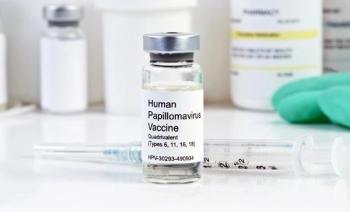
Undergoing autologous hematopoietic stem cell transplantation was effective and safe in patients with refractory multiple myeloma, including those patients who are refractory to both proteasome inhibitors and immunomodulatory agents.

Your AI-Trained Oncology Knowledge Connection!


Undergoing autologous hematopoietic stem cell transplantation was effective and safe in patients with refractory multiple myeloma, including those patients who are refractory to both proteasome inhibitors and immunomodulatory agents.

Adding nintedanib to pemetrexed/cisplatin improved the progression-free survival of patients with malignant pleural mesothelioma compared with placebo.

Long-term survivors of wild-type KRAS colorectal cancer tumors had significantly improved survival with regular use of nonsteroidal anti-inflammatory drugs.

The FDA has approved daratumumab in combination with pomalidomide and dexamethasone for the treatment of relapsed or refractory multiple myeloma.

Patients with myelofibrosis resistant or intolerant to ruxolitinib may have an alternative treatment option with the JAK2-selective inhibitor fedratinib, according to the results of a phase II study.

Combining bendamustine, pomalidomide, and dexamethasone achieved a promising overall response rate in patients with heavily pretreated lenalidomide refractory multiple myeloma, according to the results of a phase I/II trial.

A de-escalation of tyrosine-kinase inhibitor dose was safe in the majority of patients with chronic myeloid leukemia with stable major molecular response.

The American Society for Radiation Oncology issued a new clinical guideline for the use of stereotactic body radiation therapy in patients with early-stage lung cancer.

Treatment with nivolumab alone and in combination with ipilimumab resulted in durable responses in patients with previously treated small-cell lung cancer.

Although hematologic oncologists see the value in hospice, their concerns about the adequacy of services for their patients with blood cancers may limit hospice referrals.

The use of a four-gene signature identified a series of subgroups of triple-negative breast cancer, including one subtype that was responsive to platinum-based chemotherapy in the metastatic setting.

A novel high-intensity sequencing approach enabled broad detection of genomic variants in plasma with high rates of concordance with corresponding tumor tissue in patients with metastatic breast, lung, and prostate cancer.

The combination of the anti-CD38 monoclonal antibody isatuximab with pomalidomide/dexamethasone had an acceptable and manageable safety profile in patients with relapsed or refractory multiple myeloma.

A new study found that patients with mCRPC had higher PSA response with enzalutamide vs abiraterone, but no difference in time to progression, and reported worse outcomes in those with quantifiable ctDNA.

Dual HER2 blockade was superior to single blockade in postmenopausal women with HER2-positive, HR-positive metastatic breast cancer.

A fifth course of cytarabine chemotherapy resulted in improved overall and disease-free survival in pediatric patients with low-risk acute myeloid leukemia.

Pazopanib 600 mg daily as adjuvant therapy did not prolong disease-free survival for patients with locally advanced renal cell carcinoma.

The addition of pertuzumab to trastuzumab and chemotherapy improved invasive disease–free survival in patients with HER2-positive early breast cancer.

Dacomitinib delayed progression of EGFR-positive non–small-cell lung cancer, but led to more adverse events compared with gefitinib.

CAR T-cell therapy targeting B-cell maturation protein may be a new effective type of immunotherapy treatment for patients with multiple myeloma.

A brief psychological intervention-Managing Cancer and Living Meaningfully (CALM)-significantly reduced distress in patients with advanced cancer.

Use of a psychological intervention-Conquer Fear-significantly reduced fear of cancer recurrence in cancer survivors in the first 6 months after treatment.

Abiraterone at the start of ADT for men with metastatic prostate cancer significantly improved overall survival and failure-free survival, with manageable toxicity.

Combined therapy with abiraterone acetate/prednisone plus ADT significantly improved overall survival and radiographic progression-free survival among men with metastatic hormone-naive prostate cancer.

Evidence suggests that the inclusion of ventilation in cigarette filters has contributed to the increased rate of lung adenocarcinoma among smokers.

Patients with stage III colon cancer who maintained a healthy lifestyle had a reduced risk for death and a trend for a lower chance of recurrence.

Attending at least one surveillance visit with colonoscopy benefited most patients diagnosed with intermediate-risk adenomas, according to the results of a retrospective study.

The stem cell transplantation utilization rate in the United States increased from 2008 to 2014, but was lower among Hispanics and non-Hispanic blacks compared with non-Hispanics whites.

Prophylactic HPV vaccination significantly reduced vaccine-type oral HPV infections among young adults, according to the results of a cross-sectional study.

The addition of adjuvant oral chemotherapy with capecitabine extended the overall survival of patients with biliary cancers by a median of 15 months, according to the results of the BILCAP study.